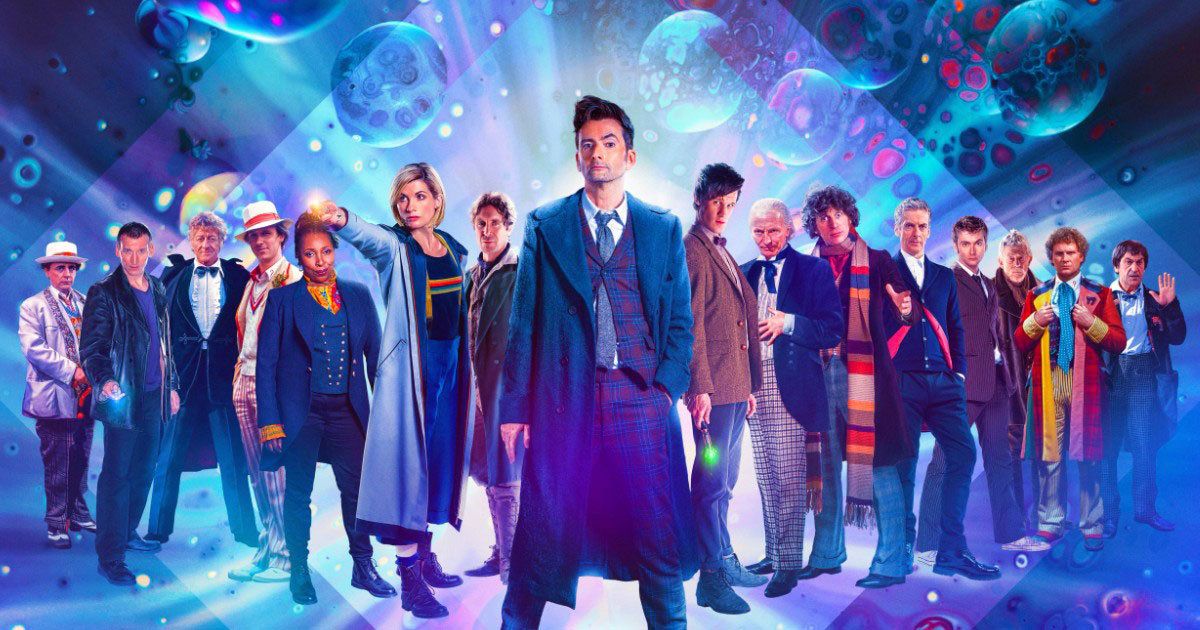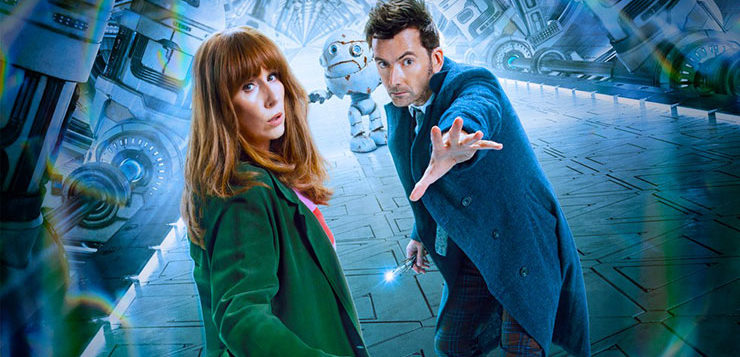Camp is coming back in a big way to Doctor Who under returning showrunner Russell T. Davies.
An acclaimed Welsh writer and producer, Davies oversaw the revival of Doctor Who in 2005, and has now returned to lead the 60th anniversary celebrations and a new era of the show (an era with slightly foreboding Disney involvement).
The event consisted of a trilogy of special episodes, aired from late November to early December 2023, starring David Tennant as the Fourteenth Doctor, in the first case of the Doctor regenerating with the face of a previous incarnation (Tennant played the 10th Doctor from 2006 to 2009).
The Star Beast, based on a 90s comic by Pat Mills and Dave Gibbons, sees the Doctor reunite with his old friend Donna Noble (Catherine Tate) amid a clash between a cute furry alien called Beep the Meep and the fearsome Wrarth Warriors.
This first special is fast-paced and full of moving, witty dialogue, and features positive trans representation in Donna’s daughter Rose (Yasmin Finney).
Wild Blue Yonder – the best of the trilogy – is a taut, claustrophobic horror story in which the Doctor and Donna’s relationship is tested by cruel mimicking creatures in a ship at the edge of the universe. Tempering its dread and paranoia with a great sense of discovery and unfolding mystery, Wild Blue Yonder is an outstanding bottle episode that makes phenomenal use of a small setting and tiny cast.
The Giggle sees the Doctor face an old enemy as chaos sweeps across the globe. Neil Patrick Harris steals the show with preening, theatrical menace as the Toymaker, a godlike trickster who the very First Doctor fought all the way back in 1966.
The Giggle and Wild Blue Yonder engage effectively with the Doctor’s regrets and recent trauma, including a literal morality play by the Toymaker on the fate of the Doctor’s companions Amy, Clara and Bill.
Tense and surreal, The Giggle is also very fun and ends on a deeply hearts-warming note.

Davies has matured as a showrunner in his nearly 15 years away. His resolutions are still slightly sappy and too clean, and The Star Beast’s ending doesn’t entirely make sense, but they don’t feel overstuffed like in his first tenure as showrunner: The Giggle’s climax boils down to a game between three people. Davies also admirably acknowledges the extremely controversial Flux and Timeless Child story arcs from his predecessor Chris Chibnall’s run instead of sweeping them under the rug.
Davies also makes impressive use of motifs and foreshadowing. Forces turning their victims crazy are major plot elements in The Star Beast and The Giggle. The Doctor using a superstition to trick and delay the mimics in Wild Blue Yonder, where the walls of reality are thin, allows the Toymaker to re-enter our universe. In The Giggle, the Toymaker describes the ball as the first and last game humanity will ever play, and sure enough, the climax is decided by a game of catch.
Moreover, the Doctor and Toymaker agree to a “best two of three” tie-breaker, and when the mortally-wounded Fourteenth Doctor splits into two in a never-before-seen “bi-generation”, the resulting Fourteenth and Fifteenth (Ncuti Gatwa) Doctors are literally the best two people of three in their game with the Toymaker.
The Doctor Who 60th anniversary trilogy is a creative, suspenseful and affecting adventure that appeals to fan nostalgia for the Doctor and Donna from Series 4, while paying loving tribute to the franchise as a whole.
As a family show, Doctor Who can be fun, silly, sad, dark and scary, but Davies’ first time as showrunner (2005-2009) was the campiest era of New Who. Steven Moffat’s era (2010-2017) could be camp, with a fairytale tone in the early series, a fixation on alluring strong women like River Song, and Missy (a female version of the Master, the Doctor’s arch-nemesis, played magnificently by Michelle Gomez) styled like an evil Mary Poppins.
The Chibnall era (2018-2022) had its moments, such as Karvanista – a grumpy dog-like alien who is intensely protective of his human charge yet can’t stand humans – and the Spy Master dancing to Rasputin by Boney M. Davies’ era, however, takes the cake, with the infamous farting Slitheen aliens in Series 1, the Master dancing to the Scissor Sisters in his floating fortress in Series 3, and John Barrowman as Captain Jack Harkness, a swaggering, pansexual Han Solo-type.
In the new Davies era thus far, there is something irrepressibly camp about a cute Furby-like alien who turns out to be a megalomaniacal conqueror, creatures that taunt and mimic their prey like a less-gruesome Thing, a reality-bending villain with an exaggerated German accent who kills people while lip-syncing to the Spice Girls, or a jazzy goblin musical number about eating babies (the latter happened in the entertaining Christmas special that just aired).
Some of the best Doctor Who is dark and poignant, but I look forward to a resurgence of camp from the showrunner who does it best.
Donate To New Matilda
New Matilda is a small, independent media outlet. We survive through reader contributions, and never losing a lawsuit. If you got something from this article, giving something back helps us to continue speaking truth to power. Every little bit counts.




